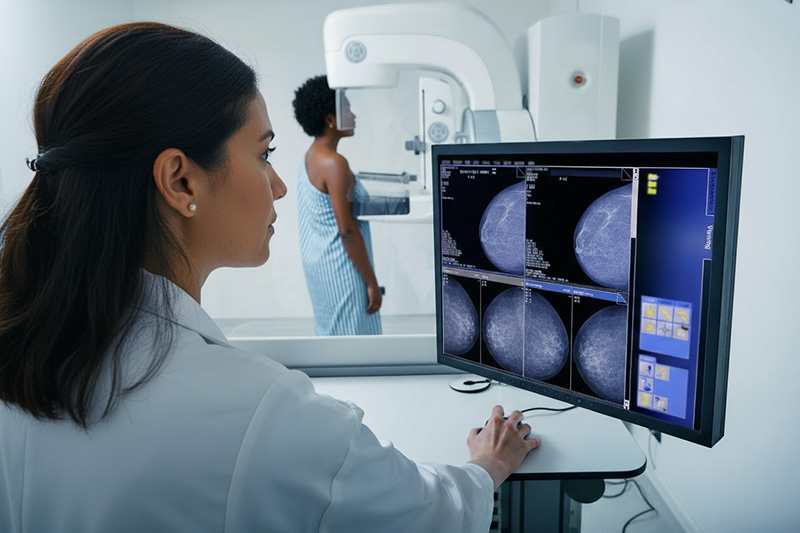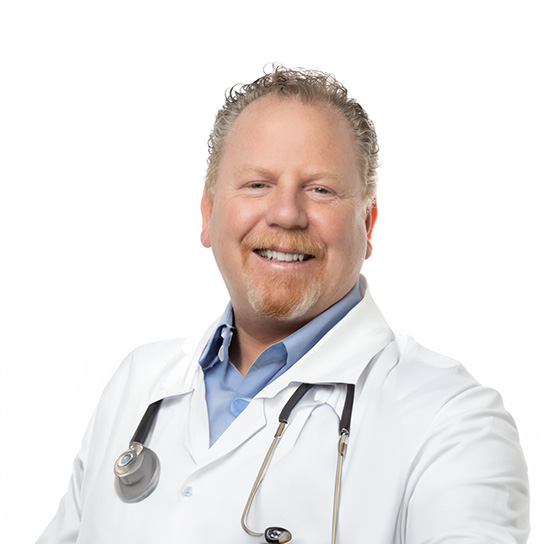
Detección temprana, protección de por vida: una guía de concientización sobre el cáncer de mama
Octubre no es solo un mes más; sirve como un poderoso recordatorio. El cáncer de mama es uno de los cánceres más comunes en las mujeres, pero la buena noticia es que se salvan muchas vidas cuando se detecta a tiempo. Durante el Mes de Concientización sobre el Cáncer de Mama, arrojamos luz sobre la prevención, la detección temprana y la atención en la que puede confiar.
El Dr. Scott Dinesen alienta a todas las mujeres, sin importar su edad o nivel de riesgo, a tomar medidas proactivas. La detección temprana conduce a más opciones y mejores resultados. En Essen Health Care, estamos comprometidos a hacer que las pruebas de detección, los exámenes y el apoyo sean accesibles para todas las mujeres del Bronx.
Comprender su riesgo, saber qué buscar y programar exámenes regulares son pasos clave para proteger su salud. Repasemos lo que toda mujer debe saber y cómo puede hacerse cargo de su salud.
Hablemos del cáncer de mama
El cáncer de mama afecta a las mujeres en los Estados Unidos, y aprender sobre él puede ayudar a salvar vidas. Aquí hay algunos datos importantes:
- 1 de cada 8 mujeres en los EE. UU. serán diagnosticadas con cáncer de mama en su vida.
- Es el cáncer más común en las mujeres, aparte del cáncer de piel.
- Alrededor del 85% de las mujeres diagnosticadas no tienen antecedentes familiares de la enfermedad.
- Cuando se detecta temprano y localizado, la tasa de supervivencia a 5 años es de alrededor del 99%.
Estos hechos muestran que el cáncer de mama puede afectar a cualquier persona, y la detección temprana es clave. Por eso es tan importante comprender su riesgo personal. Nuestro equipo de salud de la mujer está aquí no solo durante octubre, sino durante todo el año para ayudarlo a comprender sus factores de riesgo individuales y crear un plan de atención personalizado.
Conozca su riesgo
Sobre la base de lo que hemos aprendido, está claro que el cáncer de mama no siempre es hereditario. Entonces, ¿cómo saber si está en riesgo?
El Dr. Dinesen recomienda aprender sobre los factores de riesgo personales, que incluyen elementos como la edad y las opciones de estilo de vida. Cuando se trata de comprender su nivel de riesgo, considere:
- Tener 40 años o más
- Tener antecedentes familiares o genéticos de cáncer de mama o de ovario
- Experimentar cambios hormonales por la menopausia o la terapia hormonal
- Factores de estilo de vida como la obesidad, el tabaquismo y el consumo de alcohol.
Conocer sus riesgos lo ayuda a usted y a su médico a asegurarse de que está creando un plan de atención que se adapte a su edad, historial de salud, estilo de vida y preocupaciones personales. Cuando comprenda qué podría aumentar sus probabilidades de contraer cáncer de mama, puede trabajar con su equipo de atención para adelantarse a cualquier señal de advertencia. Este tipo de enfoque personalizado significa que no solo está reaccionando a los problemas, sino que está protegiendo activamente su salud de la manera que mejor funcione para usted.

Cribado y detección temprana: una estrategia clave
Ahora que comprende su riesgo, el siguiente paso es hacerse la prueba porque la detección temprana salva vidas.
Una mamografía es una radiografía simple de baja dosis que puede detectar cáncer antes de que aparezcan los síntomas. Es rápido, seguro y efectivo.
Cuando se trata de hacerse una mamografía, el Dr. Dinesen aconseja:
Hágase una mamografía todos los años o según lo aconseje su médico.
Hable con su proveedor sobre la detección más temprana.
Inclúyalos en sus chequeos de salud regulares.
En Essen Health Care, nuestros equipos de radiología y salud de la mujer trabajan juntos para asegurarse de que cada examen sea seguro, cómodo y se centre en usted. Estamos aquí para detectar cambios temprano y apoyar su atención en cada paso del camino.
Pruebas genéticas: una mirada más profunda a su riesgo
Si bien la mayoría de los casos de cáncer de mama ocurren en mujeres sin antecedentes familiares, algunos están relacionados con mutaciones genéticas hereditarias que pueden aumentar significativamente su riesgo. Es por eso que las pruebas genéticas se están convirtiendo en una parte importante de la prevención del cáncer de mama, además de recibir mamografías regulares.
Las pruebas genéticas van más allá de los exámenes mamarios y las mamografías tradicionales al integrar tecnología de vanguardia para identificar a las mujeres que pueden tener un mayor riesgo de cáncer de mama. Un simple análisis de sangre o saliva puede ayudar a las mujeres y a su médico a comprender mejor sus factores de riesgo y guiar las decisiones sobre la prevención.
El Dr. Dinesen alienta a las mujeres a hablar con su proveedor sobre las pruebas genéticas si:
- Tiene varios familiares con cáncer de mama o de ovario
- Tener un familiar diagnosticado antes de los 50 años
- Tiene una mutación BRCA conocida en la familia
En Essen Health Care, estamos comprometidos a ofrecer exámenes preventivos que van más allá de los exámenes de mama y mamografías tradicionales. A través de pruebas genéticas avanzadas y asesoramiento, ayudamos a las mujeres a comprender su riesgo hereditario, guiar las estrategias de prevención y adaptar la atención a las necesidades de cada individuo. Este enfoque proactivo y basado en la precisión refleja nuestro compromiso de brindar atención médica avanzada y compasiva para la mujer aquí mismo en el Bronx.
Lo que puedes hacer ahora mismo
Ha aprendido los hechos, ha entendido su riesgo y ha visto cómo las pruebas de detección pueden salvar vidas. Entonces, ¿qué puedes hacer hoy?
El Dr. Dinesen sugiere estos pasos simples y proactivos:
Incluso si está vencido o atrasado.
Familiarizarse con el aspecto y la sensación de sus senos es vital y ayudará con la detección temprana.
Una dieta equilibrada y una rutina de ejercicio regular apoyarán la salud en general.
Esto es fundamental para ayudar a reducir su riesgo.
Estas acciones cotidianas pueden parecer pequeñas, pero se suman. Especialmente cuando se trata de cáncer de mama. Pasos simples como programar una mamografía, hacer autocontroles mensuales y tomar decisiones de estilo de vida saludables pueden conducir a una detección más temprana, pero posiblemente prevenir el cáncer de mama por completo.

Essen Health Care está aquí para apoyarlo
En Essen, ofrecemos servicios integrales de salud de la mujer y diagnóstico por imágenes mamarias, aquí mismo en el Bronx. Nuestro objetivo es hacer que las pruebas de detección, los exámenes y la atención de seguimiento sean accesibles, respetuosos y compasivos.
Durante el Mes de Concientización sobre el Cáncer de Mama, la Dra. Dinesen y el equipo de Salud de la Mujer la alientan a priorizar su atención. Toda mujer merece una detección temprana, información clara y apoyo compasivo.
¡Que este octubre sea el mes en el que actúes!
Programe una cita hoy para comprender sus factores de riesgo o hacerse una prueba de detección.Acerca del Dr. Scott Dinesen DO, MBA, FACOG, L Ac

Con más de 34 años de dedicación a la salud de la mujer, el Dr. Scott Dinesen ha dado a luz a más de 16,000 bebés, ha realizado más de 10,000 cirugías y ha ayudado a innumerables familias a realizar sus sueños. Como Director Médico de los Servicios para la Mujer, que abarcan Obstetricia, Ginecología, Infertilidad y Cirugía Mamaria, aporta experiencia, compasión y compromiso inquebrantable a cada paciente que atiende. La Dra. Dinesen cree que el viaje de cada mujer merece atención experta, apoyo sincero y la esperanza de un mañana más saludable.